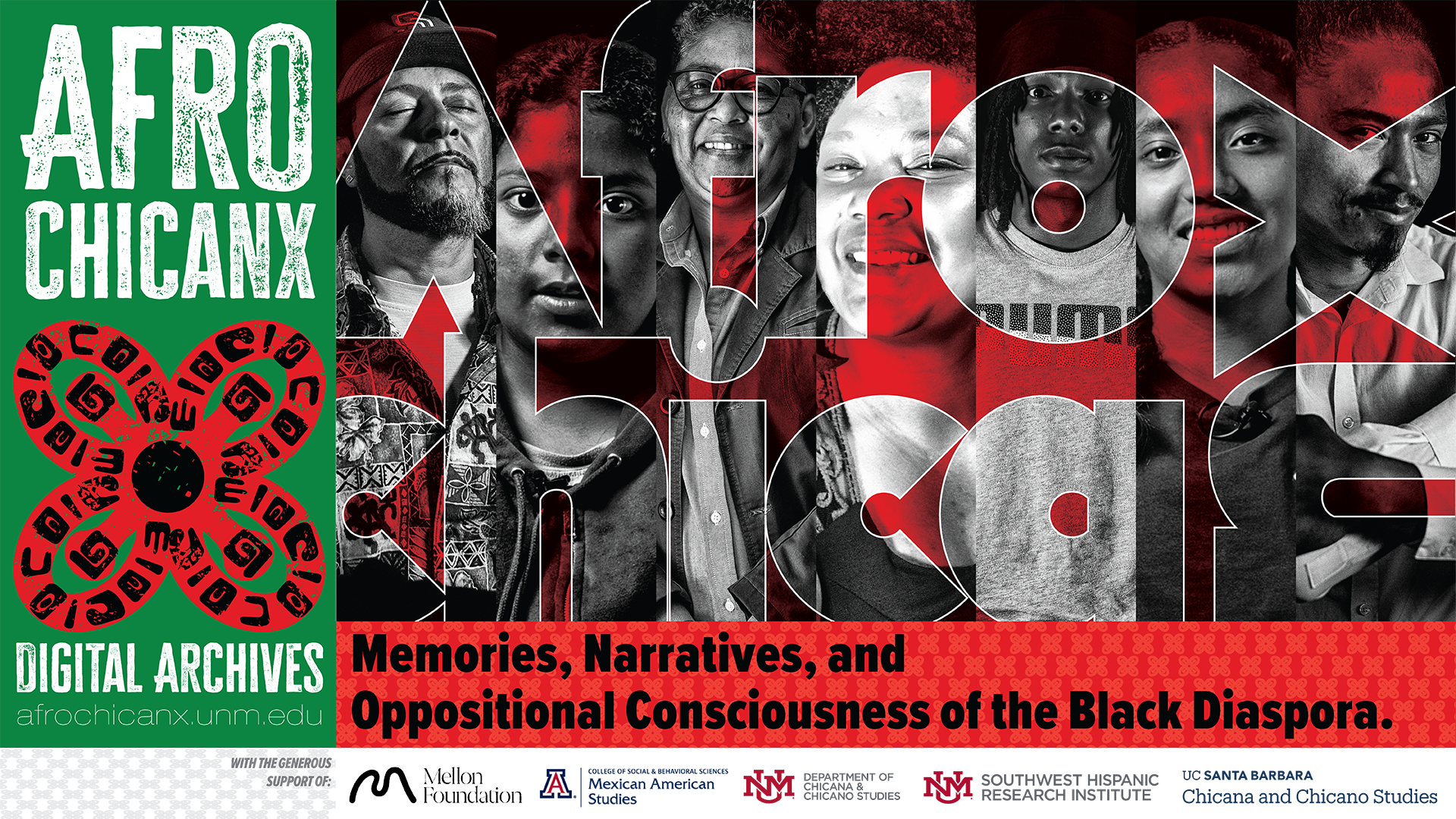AfroChicanx Digital Humanities Project

About
This website is a digital archive of the AfroChicanx Digital Humanities Project: Memories, Narratives, and Oppositional Consciousness of Black Diasporas, a cross-institutional and cross-regional collaborative research project funded through Crossing Latinidades, a Mellon Foundation initiative.
Our project explores the identities, experiences, and histories of people of African descent within Chicana/o/x and Mexican communities in diaspora. Through oral histories we examine how people who self-identify as AfroMexican, Blaxican, AfroChicana/o/x, Black and Mexican understand, navigate and shape Blackness across the US/Mexico Borderlands, specifically in Albuquerque, New Mexico; Tucson, Arizona; and Santa Bárbara, California.
Context
In the United States, scholarship in Latinx and Chicanx Studies has focused more on the colonial period; the interrogation of contemporary experiences of people who identify as Afro Latina/o/x has not been explored in many disciplines. The researchers in this project are especially attentive to the legacies of anti-Blackness in Latina/o/x and Chicana/o/x communities and the mandate of this work is to facilitate these critical interdisciplinary conversations. We ask these questions as scholars in disciplines that have historically erased Blackness and it is our intention to think beyond representation while contributing to a growing field that looks at the African diaspora in all of its manifestations.
The history of enslaved Africans in the Americas has created complex racial and colonial legacies with particular histories hemispherically. In the United States, the legacies of racial formations, settler colonialism, state-sanctioned violence, surveillance, racism, and exploitation have placed Mexican, Latina/o/x, Black, Indigenous, and Asian American communities into close proximity. These historical and contemporary conditions have contributed to a variety of cultural, political, social, and economic expressions of AfroChicanx and AfroLatinx identities.
In Mexico, recent historical moments have offered political possibilities that promise to significantly impact the previous examples of people of African descent connected with and subsumed under Mexican identities. In 2019, after decades of activism, a coalition of activists and members of AfroMexican communities organized campaigns that ultimately culminated in the Mexican government finally recognizing communities of African descent. The 2020 census confirmed the presence of people of African descent in all 32 states of Mexico. It is in this context that many Mexicans who are not part of these formally recognized AfroMexican communities began to acknowledge the Black presence in Mexico; a reality that had been marginalized and invisibilized since the colonial period to the contemporary iterations of the Mexican nation. The reverberations of this recognition have resulted in an affirmation amongst Mexican, Mexican Americans, and Chicanx communities to embrace Black identities, experiences, and realities that had been suffocated under the grips of a national discourse of mestizaje in Mexico and beyond.
Why AfroChicanx?
Scholars within Chicanx and Latinx Studies have a responsibility to critically examine the political, social, and cultural foundations of AfroMexican subjectivities to reimagine how, when, where, and why these identities shift, change, and transform – sometimes rather rapidly. This study seeks to nuance and illuminate these historical and contemporary specificities of people who identify as Black subsumed under the terms Chicana/o/x and/or Mexican. We are particularly interested in how these communities understand themselves as part of the African diaspora in the United States and the Americas. This project asserts that the African diaspora has a profound legacy in the Americas – and specifically explores the ways that AfroChicanx, AfroMexican, Blaxican communities are central to the historical and present formations of social, cultural, and political life across national borders.
